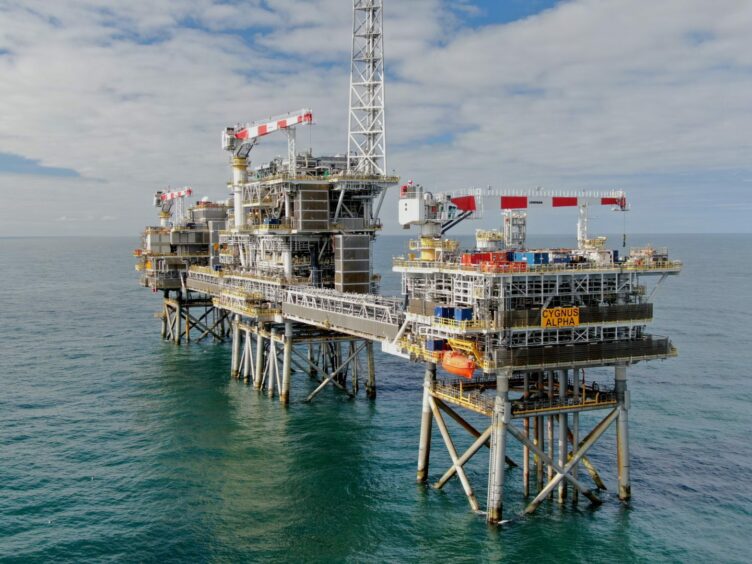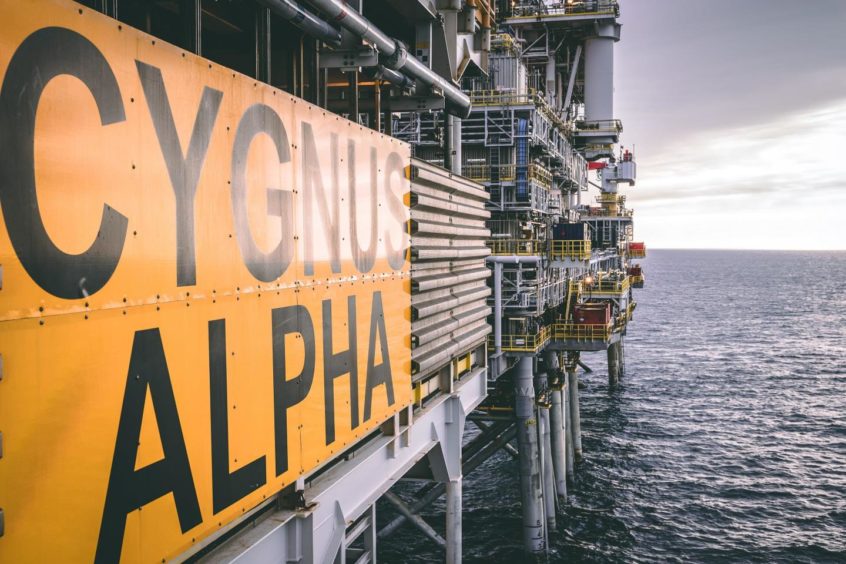
Lifting engineer James King said he has suffered lasting mental health issues and awaits the results of an unresolved investigation after he flagged safety problems during work offshore.
James ‘Jimmy’ King previously worked as a lifting engineer for services group Worley – then Worley Parsons – and was dispatched to work on a job on the Neptune Energy-operated Cygnus platform in summer 2018.
Mr King says he stopped work on an operation to lift compressors during maintenance on the platform as he believed the job to be unsafe due to the weight capacity of the equipment and the lack of a proper lift plan.
These concerns were later vindicated by an HSE report, seen by Energy Voice, which found a series of breaches of Lifting Operations and Lifting Equipment Regulations (LOLER) during the operation, including failures in preparing and updating lift plans, though it’s understood no enforcement action against duty holder Neptune was taken.
Having refused to carry out the lift, Mr King claims he was subject to “threats and bullying” by Worley staff over his decision to stop the job and removed from the rig.
In the days after the incident, Mr King was given a “malicious” first-trip assessment – a probationary evaluation usually reserved to assess inexperienced workers’ first journey offshore – despite several years of service and lift work across offshore assets, including eight trips to Cygnus A.
The same Worley staff member had, years earlier, signed assessments describing him as an “experienced rigger” and an “asset to future projects”.
Worley later withdrew the first trip assessment after Mr King launched a grievance hearing.
“I had been to 15 oil rigs in four years for Amec, who became Worley Parsons…and no one mentioned my work capability,” he said.
He says Worley showed “no duty of care” after the incident on the platform, and that the stress of the experience left him unable to return to work offshore for several years and suffering severe mental health effects, including stress-induced psoriasis.
Mr King eventually left Worley, which advised him to cease contact in December 2019 as it considered the matter “fully investigated and closed” in the wake of the HSE investigation.
The services company confirmed to Energy Voice that Mr King had been employed by the firm, but said it could not comment on individual HR matters.
A company spokesperson clarified: “The first trip assessment process is conducted when personnel move to a new contract or project, and not just for the first assignment with the company.
“We cannot comment on any investigation by the Health and Safety Executive where our processes and procedures are not involved.
“Where there are reports of potential safety breaches or safety concerns reported by our employees on a client operated site, Worley will always address these with our clients to ensure that they are aware and that appropriate action is taken. This is in accordance with our values and our duty of care.
“Worley is committed to achieving Health and Safety excellence in all its business practises and operations. We prioritise providing a physically and psychologically safe, healthy and respectful environment for our people and take action where necessary.”
HSE inquiry raised
Mr King raised his concerns over the incident repeatedly with Worley and then with the Health and Safety Executive (HSE) in late 2018, who later investigated. Enquiries were made throughout 2019 and included an inspection of the asset.
Mr King says he was “forced off” the platform and that the operation was carried out by other crew members.
In the days following the incident Neptune also conducted its own near-miss investigation, though the HSE report found this had “missed important findings” and wrongly concluded that the equipment was safe from failure despite under-capacity lifting equipment being used.
The regulator did not find evidence to support Mr King’s allegation of a “cover up” of unsafe practices.
It did not examine whether “undue pressure” was applied to lifting staff owing to the length of time since the incident.
Persisting with his concerns, he also wrote to top executives at Neptune. However, correspondence with the company shows a long-running internal investigation by the operator has yet to be concluded and disclosed to him, some five years on from the incident.
In a statement Neptune said: “In 2018, concerns raised by a contractor colleague in relation to a lifting operation were investigated by both Neptune Energy and the Health and Safety Executive.
“Subsequent recommendations made by the HSE were implemented fully and Neptune thanked the individual for raising their concerns.
“The individual later contacted Neptune with additional concerns which Neptune has investigated thoroughly, with the assistance of independent experts.
“To date, the findings are consistent with the outcomes of the original investigations, and we will feed back to the individual in due course.”
Whistleblowing protections
It comes as unions and campaign groups have called for an overhaul of whistleblowing legislation to close loopholes which mean many offshore workers receive next to no legal safeguards when raising alarms.
For years workers have complained of victimisation, and the use of ‘Not Required Back’ (NRB) status in particular, should they flag concerns over safety and conditions.
That is despite North Sea oil and gas companies having publicly committed to root out the practice.
Recommended for you

 © Supplied by Neptune Energy
© Supplied by Neptune Energy